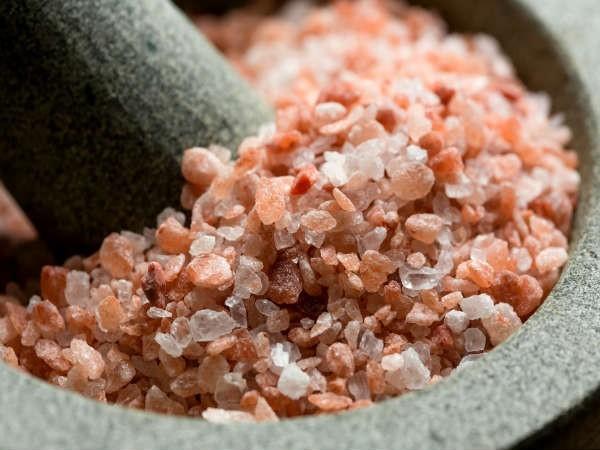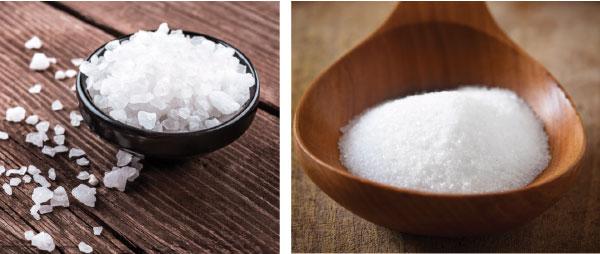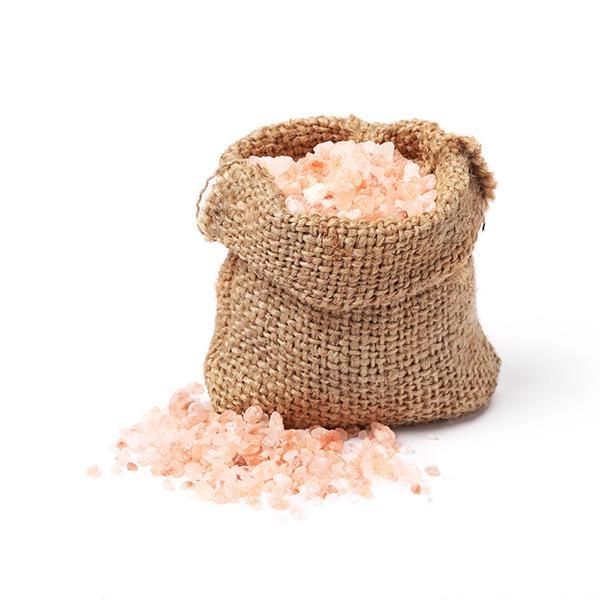உப்பு, கூடவும் கூடாது; குறையவும் கூடாது. கூடினால் ஆரோக்கியக் கேடு. குறைந்தால் உணவு ருசிக்காது. கடலை ஒட்டி சிறு பாத்திகளைக் கட்டி தயாரிக்கப்படும் உப்பைத்தான் நாம் பயன்படுத்தி வந்தோம். மாட்டு வண்டியிலும் கழுதையின் மேலும் பொதியாக சுமந்து வந்து ஊர் ஊராகச் சுற்றி அந்த உப்பை விற்பார்கள். நெல்லுக்கு, அரிசிக்கு, உளுந்துக்கு மாற்றாக உப்பை விற்பார்கள். அந்த உப்புக்குப் பெயர் 'சோடியம் குளோரைடு' என்பதைக்கூட நாம் அறிந்திருக்கவில்லை. நமக்கு அது அவசியமாகவும் இல்லை.
இன்று, வண்டி மாட்டு உப்பு வியாபாரிகள் காணாமல் போய்விட்டார்கள். பாக்கெட் பாக்கெட்டாக சோடியம் உப்பு கடைகளில் அடுக்கப்பட்டிருக்கிறது. நாம் சாப்பிட்ட உப்பில் அயோடின் இல்லையென்று கூறி, பாக்கெட் உப்பை அறிமுகம் செய்தார்கள்.
அமெரிக்க நிலப்பகுதியில் அயோடின் இல்லாததால் அவற்றில் விளையும் காய்கறி உள்ளிட்ட உணவுப்பொருள்களில் அயோடின் சத்து குறைவாக இருந்தது. அதனால் அதைச் சாப்பிட்ட அமெரிக்கர்களுக்கு ஹைபர் தைராய்டு ஏற்பட்டது. அதனால் அங்கே உப்பில் அயோடின் சேர்க்கச் சொன்னார்கள். படிப்படியாக நமக்கும் அதைப் பழக்கி விட்டார்கள்.

கல் உப்பின் பயன்பாட்டைக் குறைத்து, தூள் உப்புக்கு மாறிவிட்டோம். கோவணம் கட்டிக்கொண்டு கடலோர மக்கள் செய்த உப்பு உற்பத்தி பெருநிறுவனங்களின் கைக்குள் போய்விட்டது.
நம் உடலுக்குத் தேவையான சோடியம் நாம் உண்ணும் காய்கறி போன்றவற்றில் இருந்து கிடைத்துவிடும். பாக்கெட் உப்பில் உள்ள சோடியம் கூடுதலாக நம் உடம்பில் சேர்வதால் தேவையற்ற பிரச்னைகளை அது ஏற்படுத்துகிறது. மனித உடலுக்குப் பொட்டாசியம், மக்னீசியம், கால்சியம், சோடியம் ஆகிய நான்குவிதமான உப்புகள் தேவை. ஆனால், நாம் சோடியம் கலந்த உப்பை மட்டுமே உணவில் அதிகம் சேர்த்துக் கொள்கிறோம். அது நம் உடலில் இருந்து வியர்வையாக, சிறுநீராக வெளியேறாமல் உடலிலேயே தங்கி விடுகிறது. அதனால் உடல் பருமனாகிறது. அதேநேரம், உடம்புக்குத் தேவையான கால்சியம், மக்னீசியம் போன்ற தாதுக்கள் வெளியேறுகின்றன. கால்சியம் வெளியேறுவதால் மூட்டு வலி, முதுகு வலி போன்ற பிரச்னைகள் வரும். மக்னீசியம் வெளியேறுவதால் உடல் அசதியும் உயர் ரத்த அழுத்தமும் உண்டாகும். இதனால் மாரடைப்பு, சிறுநீரகப் பழுது ஏற்படவும் வாய்ப்புள்ளது.

அண்மைக்காலமாக சோடியம் உப்புக்குப் பதிலாக இந்துப்பு பயன்படுத்தலாம் என்கிற குரல் சித்த மருத்துவர்களிடம் இருந்து எழுந்திருக்கிறது. ஒருவகை பாறையில் இருந்து எடுக்கப்படும் இந்த உப்பை ஆங்கிலத்தில் `ஹிமாலயன் ராக் சால்ட்' என்பார்கள். இந்தியா, பாகிஸ்தானில் மலைத்தொடர்களில் சுரங்கங்களிலிருந்து வெட்டி எடுக்கப்படும் இந்துப்பு வெள்ளை, சிவப்பு மற்றும் ஊதா நிறங்களில் காணப்படுகிறது. சித்தா மற்றும் ஆயுர்வேத மருத்துவத்தில் இந்த உப்பு பயன்படுத்தப்படுகிறது.
குளிர்ச்சியூட்டும் தன்மை உள்ள இந்த உப்பு, பசியைத்தூண்டும்; மலத்தை இளக்கும். சாதாரண உப்பில் இருப்பதைப்போலவே இந்துப்பிலும் சோடியமும் குளோரைடும் இருப்பதுடன் இயற்கையாகவே அயோடின் சத்து, லித்தியம், மக்னீசியம், பாஸ்பரஸ், பொட்டாசியம், குரோமியம், மாங்கனீஸ், இரும்பு, துத்தநாகம் உள்ளிட்ட நுண் சத்துகளும் உள்ளன. பாறைகளில் இருந்து வெட்டி எடுக்கப்பட்டு தண்ணீரிலும் இளநீரிலும் ஊற வைத்து பதப்படுத்தப்பட்டு விற்பனைக்கு வருகிறது.
நாம் பயன்படுத்தும் சோடியம் உப்பு, பித்தத்தை அதிகரித்து தலை கிறுகிறுப்பு, பித்த வாந்தி, மயக்கம், உயர் ரத்த அழுத்தம் போன்றவற்றை ஏற்படுத்தும். ஆனால், இந்துப்பு பித்தத்தை ஏற்படுத்தாது. பித்தத்தையும் கபத்தையும் சமன் செய்து சளி, இருமல் வராமல் தற்காத்துக் கொள்ளும்.

இந்துப்பு செரிமான சக்தியை அதிகரித்து கண் பார்வை மற்றும் இதயத்தைப் பாதுகாக்கும். ரத்த அழுத்தத்தைச் சீராக்கும். உடலுக்கு உறுதியைத் தருவதுடன் மனச்சோர்வு போக்கி உடலில் நீர்ச்சத்தினை தக்க வைக்க உதவும். ரத்த சர்க்கரையின் அளவைக் கட்டுக்குள் வைக்க உதவும். குடல்கள் உணவை நன்றாக உறிஞ்சி உட்கிரகிக்கவும் உதவும். நிம்மதியான உறக்கத்தைத் தருவதுடன் தைராய்டு பிரச்னைக்கும் தீர்வாக இருக்கிறது.
இந்துப்பை உடலில் தேய்த்து சிறிது நேரம் கழித்து குளித்தால் உடல் அசதி நீங்கி மனமும் உடலும் புத்துணர்ச்சி பெறும். இந்துப்பு கலந்த இளஞ்சூடான நீரால் வாய் கொப்பளித்து வந்தால் வாய் துர்நாற்றம் நீங்கி பல்வலி, ஈறுவீக்கம் போன்றவை சரியாகும். மூலம் மற்றும் வயிற்றுப்புண்கள் நீங்கவும் மருந்தாகப் பயன்படுகிறது.





